
Gitega: The Heartbeat of Burundi
Gitega, the vibrant capital of Burundi, is a city teeming with cultural heritage and natural beauty. As you wander through its bustling streets, you'll be enveloped by the rich history and welcoming spirit of its people. The city is a cultural hub, home to the Gitega National Museum, where you can delve into the country's past through a vast collection of artifacts and exhibits. The Royal Palace of Gitega offers a glimpse into the regal history of Burundi, with its traditional architecture and fascinating stories. The city's lively markets are a must-visit, where you can experience the vibrant local life and buy unique crafts and souvenirs. Gitega is also surrounded by stunning landscapes, including the scenic Kibira National Park, perfect for nature enthusiasts and adventure seekers. The park boasts diverse wildlife and lush forests, offering a serene escape from the urban hustle. Gitega's culinary scene is a delightful mix of traditional Burundian flavors and modern cuisine. Don't miss the chance to try local dishes such as 'Boko Boko' and 'Mukeke'. Whether you're exploring its cultural landmarks or indulging in its natural beauty, Gitega promises an enriching and memorable experience.
Local tips in Gitega
- Visit the Gitega National Museum early in the day to avoid crowds and have ample time to explore.
- Dress modestly and respect local customs, especially when visiting religious or historical sites.
- Hire a local guide for a more insightful tour of the Royal Palace and other historical landmarks.
- Try to learn a few basic phrases in Kirundi or French to enhance your interaction with the locals.
- Carry cash, as many local markets and smaller shops do not accept credit cards.
Gitega: The Heartbeat of Burundi
Gitega, the vibrant capital of Burundi, is a city teeming with cultural heritage and natural beauty. As you wander through its bustling streets, you'll be enveloped by the rich history and welcoming spirit of its people. The city is a cultural hub, home to the Gitega National Museum, where you can delve into the country's past through a vast collection of artifacts and exhibits. The Royal Palace of Gitega offers a glimpse into the regal history of Burundi, with its traditional architecture and fascinating stories. The city's lively markets are a must-visit, where you can experience the vibrant local life and buy unique crafts and souvenirs. Gitega is also surrounded by stunning landscapes, including the scenic Kibira National Park, perfect for nature enthusiasts and adventure seekers. The park boasts diverse wildlife and lush forests, offering a serene escape from the urban hustle. Gitega's culinary scene is a delightful mix of traditional Burundian flavors and modern cuisine. Don't miss the chance to try local dishes such as 'Boko Boko' and 'Mukeke'. Whether you're exploring its cultural landmarks or indulging in its natural beauty, Gitega promises an enriching and memorable experience.
When is the best time to go to Gitega?
Iconic landmarks you can’t miss
Helena hotel
Experience authentic Burundian hospitality at Helena Hotel in Gitega, your perfect base for exploring the rich culture and history of Burundi.
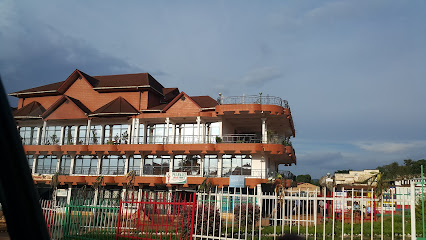
Tropitel Gitega Hôtel
Experience the essence of Gitega at Tropitel Gitega Hôtel, where comfort meets Burundian hospitality in a stunning natural setting.
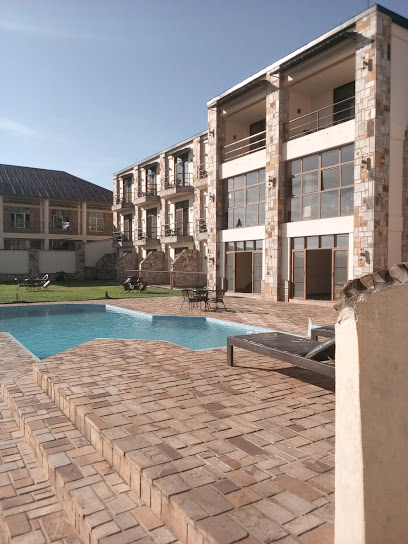
Gishora Drum Sanctuary
Explore the rhythmic heartbeat of Burundi at Gishora Drum Sanctuary, a UNESCO World Heritage site celebrating traditional drumming culture.
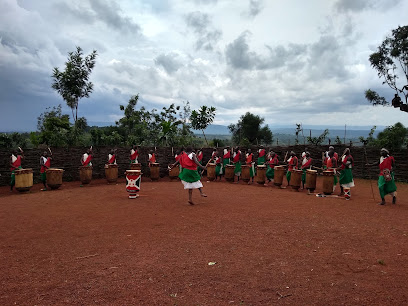
National Museum of Gitega
Explore the rich cultural heritage of Burundi at the National Museum of Gitega, where history and artistry come alive in an unforgettable experience.
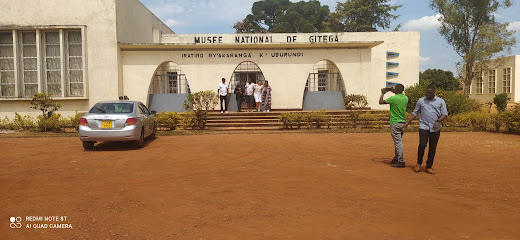
Accolade Hotel
Discover the charm of Gitega at Accolade Hotel, where comfort meets local hospitality in the heart of Burundi.
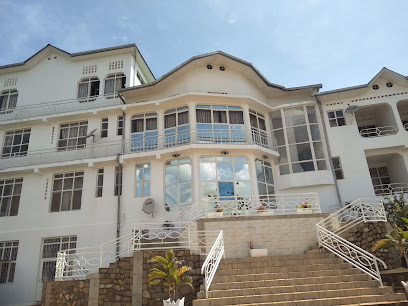
Gitega Informatics Center
Discover Gitega Informatics Center in Bujumbura: Your perfect spot for reliable internet, a cozy atmosphere, and a chance to connect with fellow travelers.
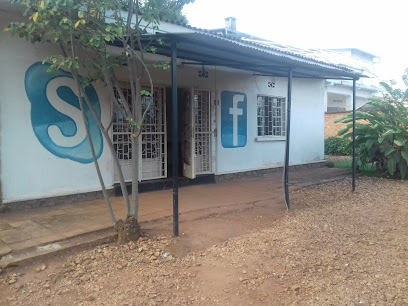
Traité de Kiganda
Discover the universe at Traité de Kiganda, a fascinating museum of space history located in the heart of Kiganda, Burundi.
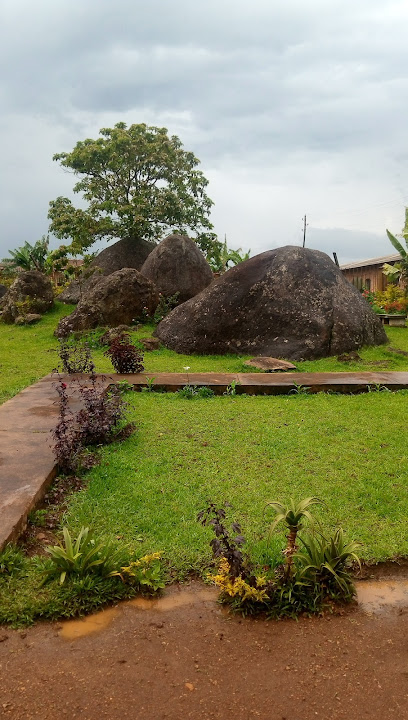
Arbre du Centre
Explore the Arbre du Centre in Gitega, a majestic historical landmark steeped in culture and tradition, showcasing the beauty of Burundi's heritage.
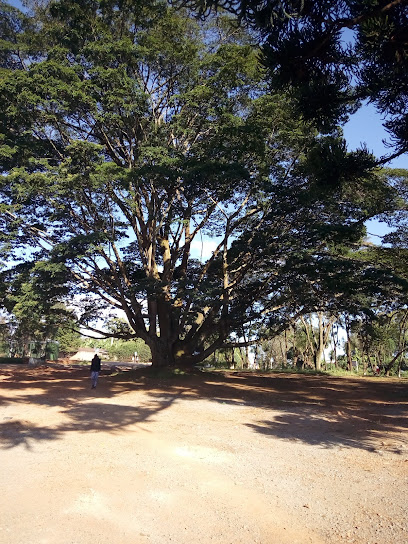
Burundi
Discover the enchanting landscapes and rich cultural heritage of Burundi, a hidden gem in East Africa that's waiting to be explored.
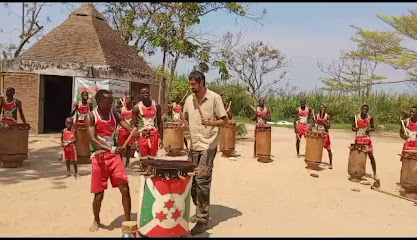
Gitega Times FM
Experience the vibrant culture of Gitega through the airwaves at Gitega Times FM, a community-focused radio broadcaster in Burundi.

Mutwenzi Gitega
Discover the heart of Burundi at Mutwenzi Gitega, a nurturing orphanage where compassion meets community spirit in the scenic hills of Gitega.
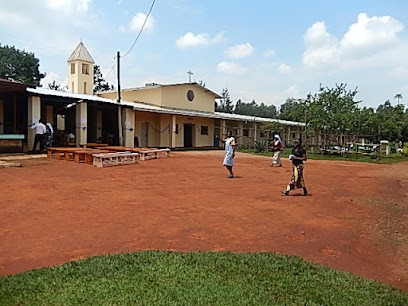
Gitega the heart of Burundi
Explore Gitega, Burundi's heart, where the Bahá'í House of Worship symbolizes peace and unity amidst stunning landscapes and rich cultural heritage.
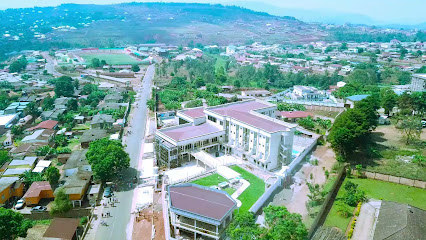
Kwa Riziki Guest House
Discover the charm of Gitega with a comfortable stay at Kwa Riziki Guest House, your cozy retreat in Burundi.

Gisabo
Discover the charm and tranquility of Gisabo Hotel in Gitega, a perfect blend of comfort and local culture in the heart of Burundi.
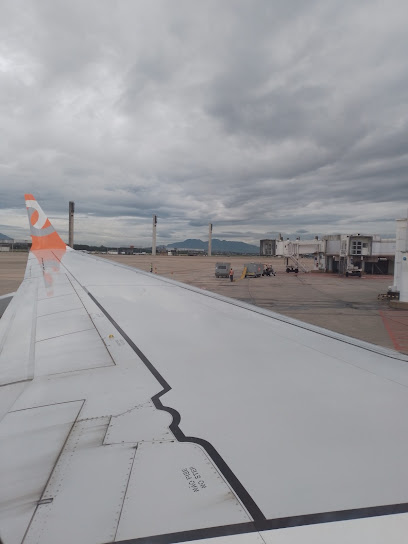
Monument de l'Unité
Discover the powerful history behind the Monument de l'Unité in Gitega, a symbol of peace and resilience in Burundi's landscape.
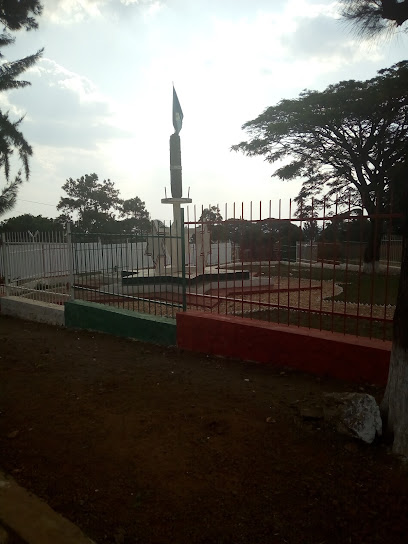
Unmissable attractions to see
Chutes de la Karera Falls
Experience the breathtaking beauty and tranquility of Chutes de la Karera Falls, a hidden gem in Burundi perfect for nature lovers and adventurers.
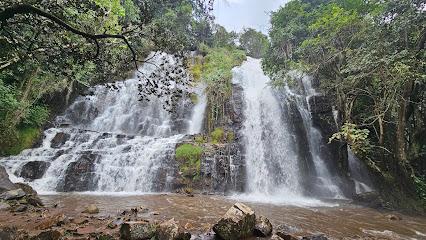
National Museum of Gitega
Discover Burundi's rich cultural heritage at the National Museum of Gitega, preserving the nation's traditions since 1955.
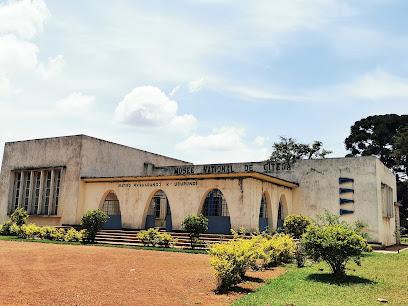
Gishora Drum Sanctuary Burundi
Experience the vibrant rhythms and rich cultural heritage of Burundi at the Gishora Drum Sanctuary, a historical and spiritual landmark.
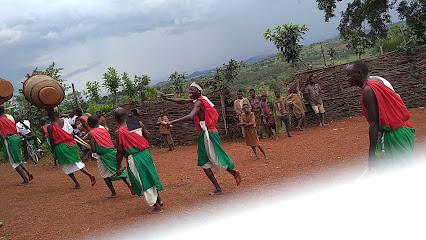
Mountain kamaranyundo
Discover the breathtaking beauty and rich cultural heritage at Mountain Kamaranyundo, a must-visit tourist attraction in Gitega, Burundi.

Ingenieur
Explore Ingenieur, a beautiful heritage building in Gitega, showcasing the rich history and architectural beauty of Burundi's cultural legacy.

Essential places to dine
Le Café Gourmand
Experience the best of Bujumbura's culinary scene at Le Café Gourmand, where delicious pastries meet local flavors in a cozy atmosphere.
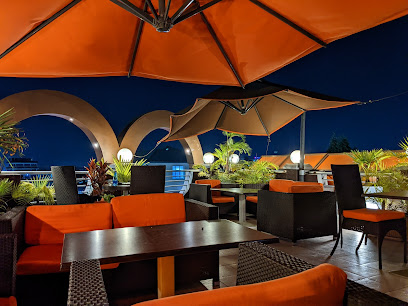
Hotel Club Du Lac Tanganyika
Experience luxury and tranquility at Hotel Club Du Lac Tanganyika—your perfect lakeside escape in Bujumbura.

Arena Restaurant Lounge Bar
Discover the culinary delights of Arena Restaurant Lounge Bar in Bujumbura - where local flavors meet international flair!
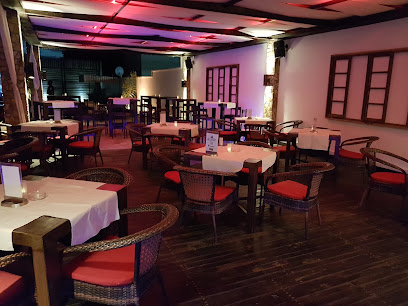
Zanzi
Experience the vibrant culinary scene at Zanzi in Bujumbura – where local flavors meet international cuisine in an inviting atmosphere.
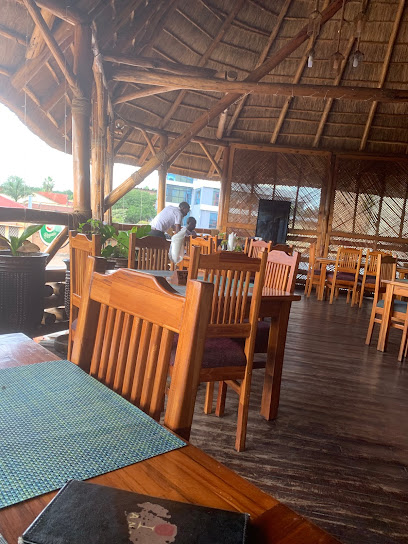
Harrys Grill House
Experience the best of Burundian cuisine at Harry's Grill House - where delicious grilled flavors meet warm hospitality.
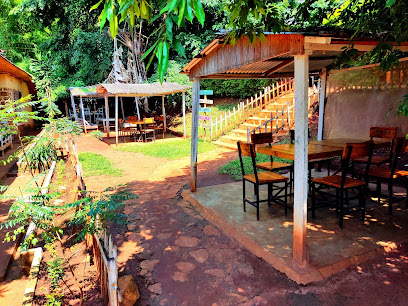
Belvedere Restaurant
Experience exquisite dining with stunning lake views at Belvedere Restaurant in Bujumbura—an essential stop for food lovers.
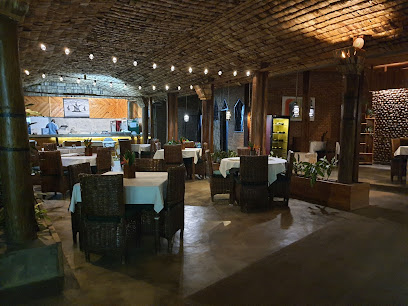
Tropitel Gitega Hôtel
Discover tranquility at Tropitel Gitega Hôtel, your perfect haven in Bwoga for exploring Burundi's rich culture and stunning landscapes.
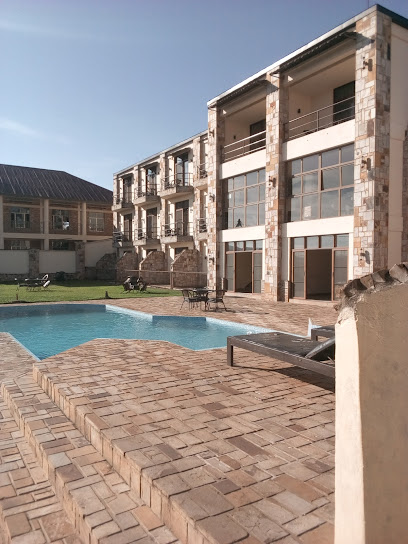
Restaurant Chez Orphée
Discover authentic Burundian flavors at Restaurant Chez Orphée in Bujumbura – a must-visit for food lovers seeking an unforgettable dining experience.
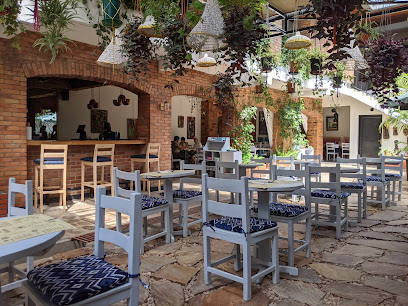
Flamboyant Gardens
Discover Flamboyant Gardens in Bujumbura - where exquisite dining meets lush landscapes for an unforgettable culinary journey.
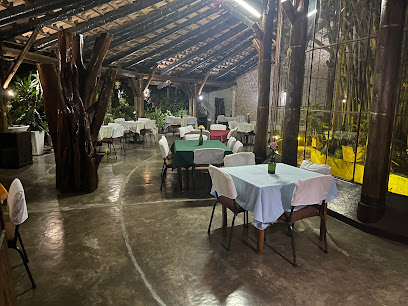
AFRITA
Discover authentic Italian cuisine at AFRITA in Gitega, where delicious pizzas and pastas await you in a warm and inviting setting.
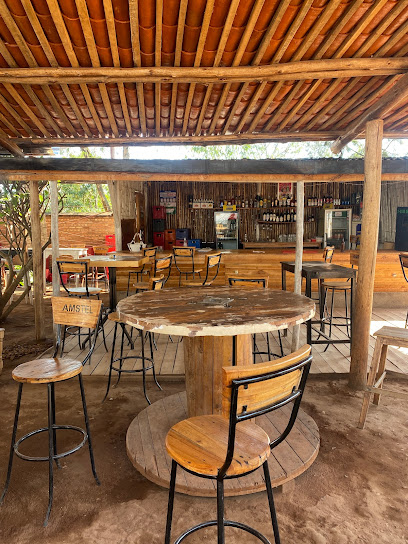
Restaurant Tanganyika
Experience authentic Burundian cuisine with stunning lake views at Restaurant Tanganyika in Bujumbura.
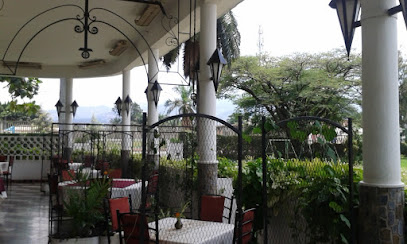
ISANGO Hôtel
Discover comfort and local charm at ISANGO Hôtel in Bwoga - your gateway to experiencing Burundian hospitality.
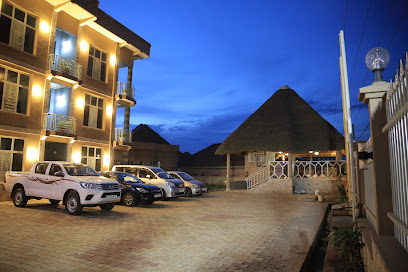
Accolade Hotel
Discover comfort and local charm at Accolade Hotel in Gitega – your perfect base for exploring Burundi's rich culture.
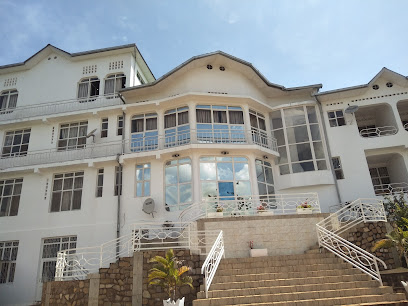
Ku Kigabiro Event
Experience the rich flavors of Burundi at Ku Kigabiro Event - a top restaurant in Bujumbura offering delicious local cuisine and vibrant atmosphere.
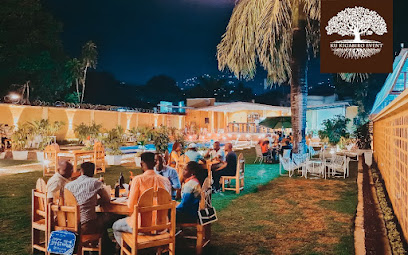
Inyambo Restaurant Bar
Experience authentic Burundian cuisine at Inyambo Restaurant Bar in Bujumbura—where flavors meet tradition in a welcoming atmosphere.
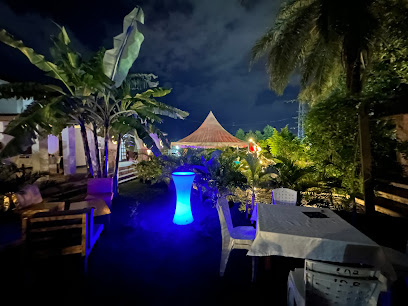
Markets, malls and hidden boutiques
Lumitel Showroom (Gitega)
Discover cutting-edge electronics and local expertise at the Lumitel Showroom in Gitega, perfect for tech-savvy travelers.
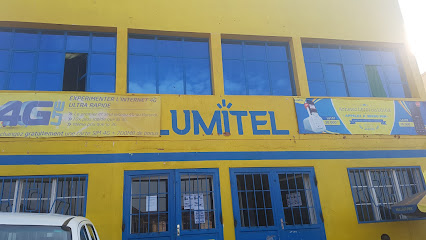
Marché de Gitega-Gitega Market
Explore the vibrant Marché de Gitega, a cultural gem in Burundi filled with local flavors, crafts, and an authentic market experience.
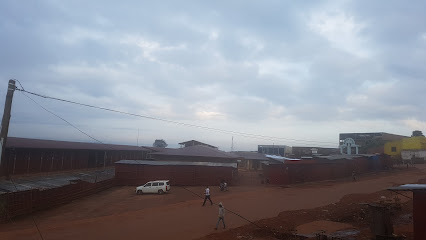
Pharmacie Amin's
Discover health and wellness at Pharmacie Amin's in Gitega, your trusted pharmacy for all travel health essentials.

Gitega Galerie GWANZU
Discover unique crafts and souvenirs at Gitega Galerie GWANZU, the cultural heart of Gitega, Burundi.
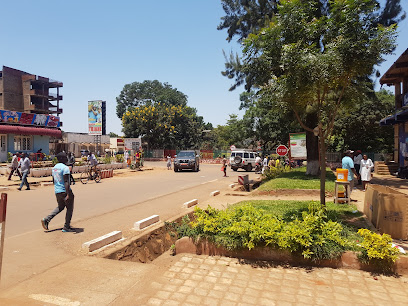
DAMANI SHOP RITE
Experience local culture at Damani Shop Rite, Gitega's premier supermarket for fresh produce, groceries, and unique Burundian products.
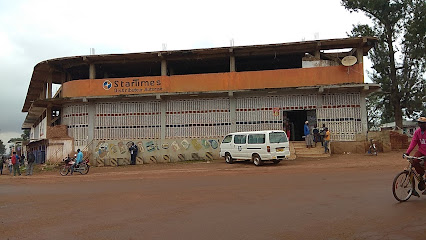
Marché Centrale de Gitega
Explore the Marché Centrale de Gitega for a vibrant selection of traditional Burundian clothing and a lively cultural experience.

BAHONGA ALLY
Explore Bahonga Ally in Gitega for the latest electronics and experience the vibrant tech culture of Burundi.

Sahil Alimentation
Discover the vibrant flavors of Burundi at Sahil Alimentation, Gitega's premier grocery destination for local and international delights.
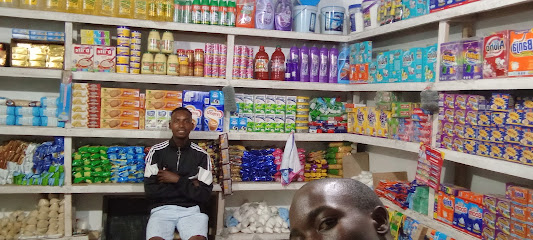
Magasin Kubiyo
Explore local craftsmanship and unique home improvement essentials at Magasin Kubiyo, a vibrant hardware store in the heart of the community.

Praia
Explore the vibrant flavors of Mutobo at Praia, the local grocery store offering fresh produce and unique culinary delights for every visitor.

Le Marché Du Vin
Explore the vibrant flavors of Burundi at Le Marché Du Vin, Gitega's premier liquor store offering a delightful selection of local wines and spirits.
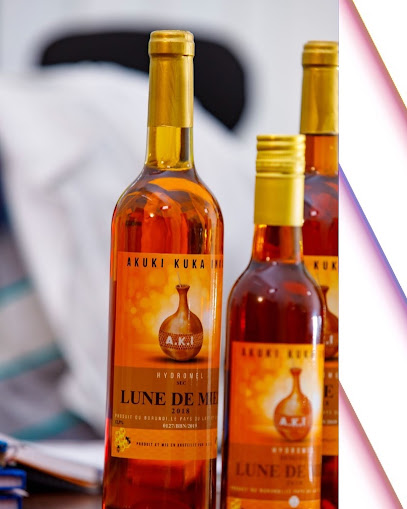
Gitega
Explore Gitega, Burundi's charming town known for its delightful ice cream shops and rich cultural experiences amidst stunning landscapes.

Amator Trading Group (AMTRAG)
Explore Amator Trading Group in Gitega for authentic Burundian home goods and unique local crafts, perfect for souvenirs and home decor.

Dieudonne Diouf
Discover the heartbeat of Burundian music at Dieudonne Diouf Recording Studio in Gitega, where creativity meets tradition.

Pharmacie le Quinquina
Discover Pharmacie le Quinquina in Gitega, where healthcare meets convenience for all travelers seeking wellness during their journey.
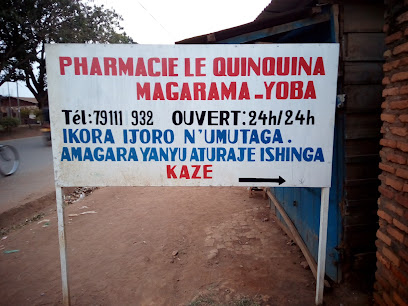
Essential bars & hidden hideouts
Cercle de Gitega
Discover the lively atmosphere of Cercle de Gitega, a key bar in Gitega offering a blend of local culture and refreshing drinks.
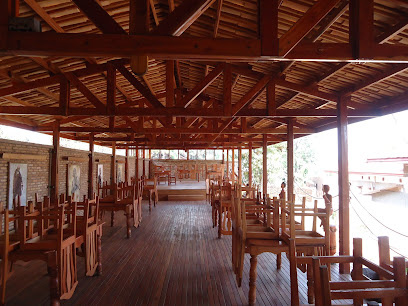
Favina Home
Experience authentic Burundian flavors at Favina Home, a grill restaurant in Quartier Rango, Gitega, perfect for food lovers and cultural explorers.
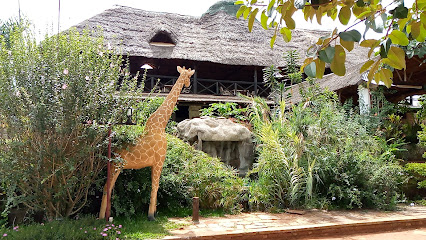
KUNGOMA Bar
Discover the vibrant atmosphere and local flavors at KUNGOMA Bar in Gitega, a cultural gem in Burundi perfect for socializing and relaxation.
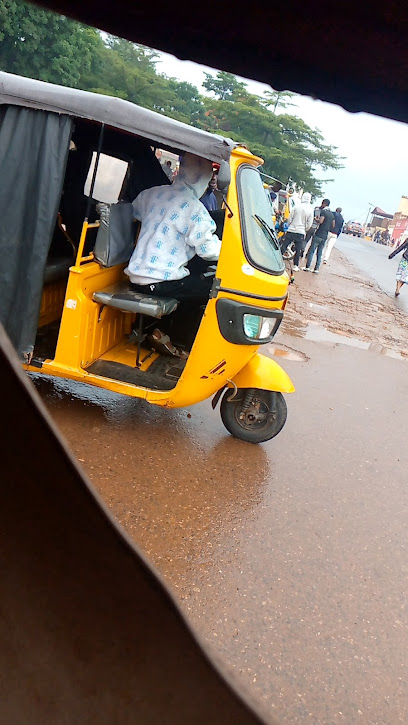
Bar Cher Dieudonne HAVYARIMANA
Experience the vibrant nightlife at Bar Cher Dieudonne HAVYARIMANA in Gitega, where local culture meets refreshing beverages in a lively atmosphere.

Chez Maman Bonheur
Experience the warmth and vibrant atmosphere at Chez Maman Bonheur, Gitega's beloved bar offering local drinks and cultural entertainment.
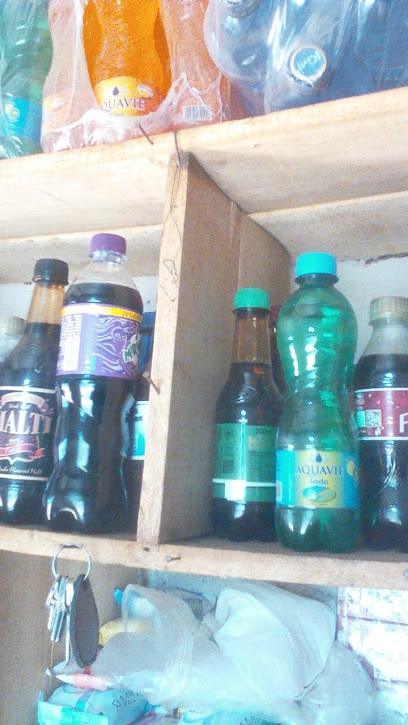
Bar KUBAHUMURE
Discover Bar KUBAHUMURE in Gitega, where local culture meets a vibrant atmosphere, perfect for relaxation and socializing.

BAR KUMUKONI
Explore the vibrant nightlife at BAR KUMUKONI in Gitega, where local flavors and a lively atmosphere create unforgettable experiences.

Bar Chez Maximilien
Discover the vibrant atmosphere and local culture at Bar Chez Maximilien in Gitega, where drinks and camaraderie await.

Ingoma Bar
Immerse yourself in the vibrant nightlife and local culture at Ingoma Bar in Gitega, where drinks and camaraderie flow effortlessly.
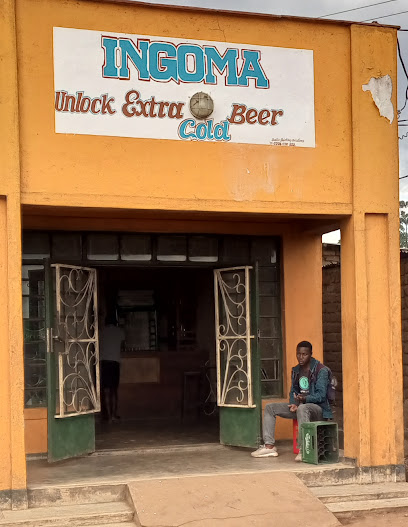
African Corner
Discover the lively ambiance and rich culture at African Corner, Gitega's premier bar for locals and tourists alike.

Best Next Bar
Experience the lively atmosphere and diverse drink selection at Bwoga's Best Next Bar, a must-visit for nightlife lovers.

BAFANA BAR
Explore the dynamic nightlife at Bafana Bar in Gitega, where vibrant culture meets refreshing drinks for an unforgettable experience.

Bar la Difference
Experience the vibrant atmosphere of Bar la Difference in Gitega, where local culture meets a lively bar scene for an unforgettable night out.

PIZURA Bar Chez Maman Dady
Experience the lively atmosphere and local flavors at PIZURA Bar Chez Maman Dady in Gitega, a vibrant hub for tourists and locals alike.

ladrinfo
Discover the vibrant atmosphere of Ladrinfo, a local bar in Gitega, where great drinks and Burundian culture come together.

Local Phrases
-
- HelloAmakuru
[ah-mah-KOO-roo] - GoodbyeMurabeho
[moo-rah-BEH-ho] - YesEgo
[EH-go] - NoOya
[OH-yah] - Please/You're welcomeNimukunda
[nee-moo-KOON-dah] - Thank youMurakoze
[moo-rah-KOH-zay] - Excuse me/SorryNdabimenya
[n-dah-bee-MEN-yah] - How are you?Amakuru?
[ah-mah-KOO-roo?] - Fine. And you?Birashoboka. Wewe?
[bee-rah-SHO-boh-kah. WAY-way?] - Do you speak English?Mwaba mva kinyarwanda?
[mwah-bah m-vah kin-yah-rwan-dah?] - I don't understandNtawumva
[ntah-woom-vah]
- HelloAmakuru
-
- I'd like to see the menu, pleaseNifuje kugira menu, kubanjirije
[nee-foo-jay koo-gee-rah menu, koo-ban-jee-ree-jay] - I don't eat meatSimvya ibiryo by'ibirara
[seem-vyah ee-beer-yo bee-ee-bir-rah-rah] - Cheers!Amahoro!
[ah-mah-HOH-roh] - I would like to pay, pleaseNifuje kugura, kubanjirije
[nee-foo-jay koo-goo-rah, koo-ban-jee-ree-jay]
- I'd like to see the menu, pleaseNifuje kugira menu, kubanjirije
-
- Help!Umusi!
[oo-moo-see!] - Go away!Baza!
[bah-zah!] - Call the Police!Sibyuma Police!
[see-byoo-mah Poh-leece!] - Call a doctor!Sibyuma Dokoteli!
[see-byoo-mah Doh-koh-teh-lee!] - I'm lostNanteka
[nahn-teh-kah] - I'm illNdarara
[n-dah-rah-rah]
- Help!Umusi!
-
- I'd like to buy...Nifuje kugura...
[nee-foo-jay koo-goo-rah...] - I'm just lookingNifuje gukora isoni
[nee-foo-jay goo-koh-rah ee-soh-nee] - How much is it?Ni iki giciro?
[nee ee-kee gee-chee-ro?] - That's too expensiveIyo n'icyo cya giciro gikomeye
[ee-yoh nee-chee-yo ch-ya gee-chee-ro gee-koh-may-yay] - Can you lower the price?Wibuke giciro?
[wee-boo-kay gee-chee-ro?]
- I'd like to buy...Nifuje kugura...
-
- What time is it?Saa ngapi?
[sah ngah-pee?] - It's one o'clockNi saa imwe
[nee sah eem-way] - Half past (10)Kuri 10:30
[koo-ree ten-thur-tee] - MorningKu munsi
[koo moon-see] - AfternoonKu mugitondo
[koo moo-gee-ton-doh] - EveningKu munsi
[koo moon-see] - YesterdayEjo
[ay-joh] - TodayUyu munsi
[oo-yoo moon-see] - TomorrowEjo
[ay-joh] - 1Rimwe
[ree-mway] - 2Kabiri
[kah-bee-ree] - 3Gatatu
[gah-tah-too] - 4Kane
[kah-nay] - 5Gatanu
[gah-tah-noo] - 6Gatandatu
[gah-tahn-dah-too] - 7Kumana
[koo-mah-nah] - 8Cumwe
[choom-way] - 9Icyenda
[ee-chyen-dah] - 10Icumi
[ee-choo-mee]
- What time is it?Saa ngapi?
-
- Where's a/the...?Aho ari...
[ah-hoh ah-ree...] - What's the address?Aho ni aho?
[ah-hoh nee ah-hoh?] - Can you show me (on the map)?Wibuke kundika kuri murugo?
[wee-boo-kay koon-dee-kah koo-ree moo-roo-goh?] - When's the next (bus)?Igihe cy'umunsi w'ukwezi uyu munsi?
[ee-ghee-hay chee-oo-moon-see woo-kweh-zee oo-yoo moon-see?] - A ticket (to ....)Igiciro (kuri ...)
[ee-gee-chee-ro (koo-ree ...)]
- Where's a/the...?Aho ari...
History of Gitega
-
Gitega, historically known as Kitega, has its roots deeply embedded in the pre-colonial era of Burundi. The region was originally inhabited by the Twa people, followed by the influx of Hutu and Tutsi communities. The strategic location of Gitega made it a significant hub for trade and interaction among these groups.
-
In the 19th century, Gitega became the royal capital of the Kingdom of Burundi. It served as the residence for the Mwami (king) and the center of administrative and cultural activities. The royal court in Gitega was a symbol of the kingdom's sovereignty and played a pivotal role in maintaining traditional customs and governance.
-
During the late 19th and early 20th centuries, Gitega fell under German colonial rule, which lasted until the end of World War I. Following the war, the League of Nations mandated Burundi to Belgium. Gitega continued to be an important administrative center under Belgian rule, which led to the establishment of colonial infrastructure and institutions.
-
Burundi gained independence from Belgium on July 1, 1962, with Gitega playing a crucial role in the political landscape of the newly independent nation. However, the following decades were marked by ethnic tensions and political instability, including the assassination of Prime Minister Pierre Ngendandumwe in 1965 and subsequent coups and conflicts.
-
Gitega is renowned for its rich cultural heritage, including traditional Burundian drumming, dance, and crafts. The city is home to the Gitega National Museum, which houses artifacts and exhibits that reflect the historical and cultural evolution of Burundi. Additionally, the Gishora Drum Sanctuary, located nearby, is a UNESCO World Heritage site that showcases the artistry and significance of royal drumming.
-
In recent years, Gitega has seen significant development and modernization efforts. In 2019, President Pierre Nkurunziza officially declared Gitega as the new political capital of Burundi, replacing Bujumbura. This move aimed to decentralize administrative functions and foster balanced regional development. Today, Gitega stands as a symbol of Burundi's historical legacy and its aspirations for the future.
Gitega Essentials
-
Gitega, the capital city of Burundi, is accessible mainly via Bujumbura International Airport (BJM), which is about 100 kilometers away. From Bujumbura, you can take a bus, taxi, or rent a car to reach Gitega. The journey typically takes around 2 to 3 hours by road. Another option is to use domestic flights or private charter services that may operate between Bujumbura and Gitega.
-
Gitega is a compact city, and much of it can be explored on foot. For longer distances, local taxis are available and reasonably priced. Motorbike taxis, known locally as 'boda-bodas,' are a popular and affordable way to get around. Public minibuses operate on various routes within the city and to nearby towns. Car rentals are also available for those who prefer to explore the area at their own pace.
-
The official currency of Burundi is the Burundian Franc (BIF). Credit cards are accepted in some hotels, high-end restaurants, and shops, but cash is preferred in most places. ATMs are available in Gitega, though it is advisable to carry sufficient cash, especially when traveling to more remote areas. It is recommended to exchange currency at official exchange bureaus or banks.
-
Gitega is generally safe for tourists, but it is essential to take standard precautions. Avoid walking alone at night in unfamiliar areas and be cautious of pickpockets in crowded places. The neighborhoods of Bwoga and Nyamugari have reported higher crime rates, so it is best to stay vigilant when visiting these areas. Always keep your belongings secure and be aware of your surroundings.
-
In case of emergency, dial 117 for police assistance and 118 for fire services. The main hospital in Gitega is the Hôpital Régional de Gitega, which offers medical services and emergency care. It is advisable to have travel insurance that covers medical emergencies. For minor health issues, pharmacies are available in the city where you can purchase over-the-counter medications.
-
Fashion: Do dress modestly, especially when visiting religious sites. Avoid wearing revealing clothing. Religion: Do respect local customs and traditions. Always remove your shoes when entering places of worship. Public Transport: Do be respectful and give up your seat to elderly passengers. Don't eat or drink on public transport. Greetings: Do greet people with a handshake and a smile. A slight nod of the head is also a sign of respect. Eating & Drinking: Do try local delicacies and accept food offerings graciously. Don’t refuse hospitality, as it is considered impolite.
-
To experience Gitega like a local, visit the vibrant central market where you can buy fresh produce and traditional Burundian goods. Engage with the locals, as they are often friendly and willing to share stories about the city’s history and culture. Don’t miss visiting the Gitega National Museum, which offers insights into Burundi's cultural heritage. For a unique experience, attend a traditional drumming performance, which is an integral part of Burundian culture.
Trending Landmark in Gitega
Nearby Cities to Gitega
-
Things To Do in Muramvya
-
Things To Do in Ngozi
-
Things To Do in Bujumbura
-
Things To Do in Kayanza
-
Things To Do in Bururi
-
Things To Do in Muyinga
-
Things To Do in Rumonge
-
Things To Do in Butare
-
Things To Do in Kirundo
-
Things To Do in Cibitoke
-
Things To Do in Nyamata
-
Things To Do in Karongi
-
Things To Do in Muhanga
-
Things To Do in Kigoma
-
Things To Do in Kibuye







